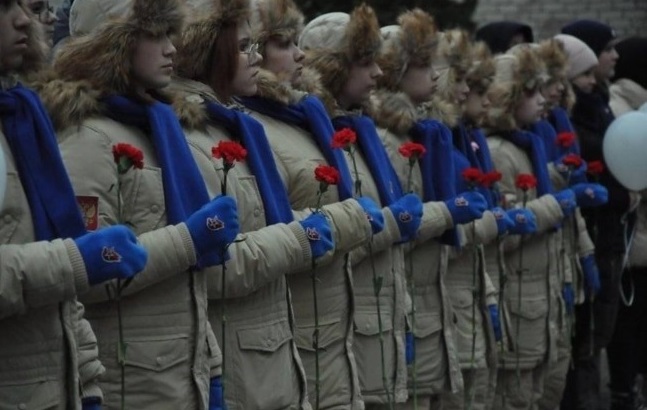The Family School in Russia
At the behest of the Duma special courses in a new subject, Semjevedenie or 'Introduction to the Family' were activated. Between the affirmation of values in public and private life and the 'preparation of new generations of patriots' as opposed to the lifestyles of the West.
Moscow (AsiaNews) - 2024 in Russia has been proclaimed the "Year of the Family", which also constitutes the main rhetorical content of the electoral programs for yet another presidency of Vladimir Putin and his valet competitors.
Special courses have therefore been activated in schools in a new subject, Semjevedenie or "Introduction to the family", which for now is still optional, although many are pushing to make it compulsory.
The family in Russia remains a rather uncertain concept, after the long Soviet decades in which the prevalence of the State was imposed over any private institution, including the Church and indeed the family.
This had caused such a disintegration of relationships that already in 1982, at the end of the Brezhnevian period, the course on "Ethics and psychology of family life" had been introduced in Soviet schools, suppressed after the end of the USSR and today effectively reintroduced as signal of the complete re-Sovietization of the country, made evident by the murder in the concentration camp of the last dissident Aleksej Naval'nyj.
To tell the truth, the Semjevedenie had already been activated in many regions of the Federation on an experimental basis, especially on the initiative of the Orthodox clergy. From 2021 it was planned as a "social studies" section, a generic address to transmit the main "traditional values" in the context of public and private life.
Since the beginning of the war in Ukraine these topics have been relaunched with particular emphasis in school education, for the "preparation of new generations of patriots". The new version of the program was decided directly by the Duma Committee for the defense of the family and for issues of fatherhood, motherhood and childhood, presented already last November by President Nina Ostanina.
The report noted that it is necessary to frame the family "in the conditions of the time in which we live", recalling the negative example of the 1990s, lived under the evil influence of the West, when "condoms and contraceptives were distributed in schools".
Today, however, we need to find a way to "convince girls to keep the fetus, even when they become pregnant at a premature age". But a survey by the teachers' union shows that only 6% of teachers say they are in favor of this approach to the subject.
On social networks, the comments of adults, starting from the parents of the students, repeat "leave the school alone, just let them study", or "aren't the many conversations about important things enough? Why do you want to take this responsibility away from parents too?”, “then let's also introduce courses for housework, gardening and work in the garden, and leave science to the scions of the ruling caste”, while others recall the Domostroj, the Ancient Russian etiquette manual from the early seventeenth century.
The president of the super-patriotic association of the "Teachers' Alliance", Daniil Ken, responds rather that "instead of manuals, the study of the family must become a methodological laboratory, based on informal suggestions and recommendations", but in any case in a mandatory and widespread, from the first classes to high schools, "paying attention to the different stages of the development of girls and boys".
The director of the Institute for the Development of Education, Irina Abankina, believes instead that "our current school system is not able to adequately propose such a delicate subject", also given the excessive intensity of "orientation" programs and courses moral and social” introduced in recent years.
Curriculums have been modified for history and social studies, technology lessons are renamed "work lessons", perhaps with the addition of military training and the use of defense and assault drones. Teachers are forced to work double shifts, and are often supported by priests and soldiers; for all these topics there are competitions, flashmobs and practical exercises.
11/08/2017 20:05







.png)










